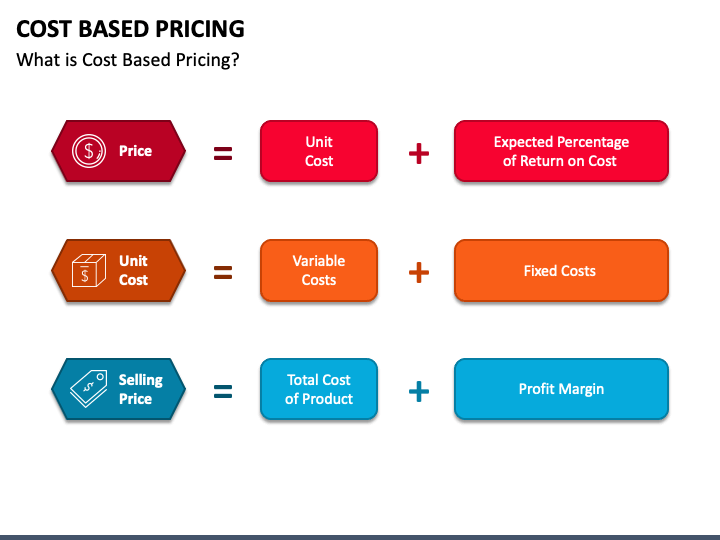The Definitive Guide to the Cost of Renting a U-Haul Car Trailer cars.truckstrend.com
Moving a vehicle, whether it’s across town or across the country, often presents a logistical challenge. From classic cars needing special care to broken-down daily drivers, or simply relocating an extra vehicle during a household move, U-Haul car trailers offer a practical and widely available solution. However, before you hook up and hit the road, understanding the "Cost of Renting a U-Haul Car Trailer" is paramount. This article aims to be your comprehensive guide, dissecting the various factors that influence the price, providing practical advice, and equipping you with the knowledge to make an informed, budget-friendly decision.
Renting a U-Haul car trailer isn’t a one-size-fits-all expense. Its cost is a dynamic figure, influenced by several key variables, ranging from the type of trailer you need to the distance you’re traveling, the duration of your rental, and even the time of year. By breaking down these components, we’ll uncover the true cost and help you navigate the rental process with confidence, avoiding any unexpected surprises along the way.
The Definitive Guide to the Cost of Renting a U-Haul Car Trailer
Understanding U-Haul Car Trailer Types and Their Impact on Cost
U-Haul primarily offers two types of car trailers, each designed for different needs and, consequently, carrying a different price tag:
-
U-Haul Auto Transport Trailer: This is the larger, heavier-duty option. An auto transport trailer is a full-bed trailer that lifts all four wheels of your vehicle completely off the ground. This is ideal for long distances, vehicles with mechanical issues, or classic cars that you don’t want to put extra miles on. Because of its larger size, heavier construction, and the comprehensive support it provides to the towed vehicle, the auto transport trailer is generally the more expensive of the two options. It requires a more robust towing vehicle with a higher towing capacity.
-
U-Haul Tow Dolly: The tow dolly is a simpler, lighter, and more economical solution. It lifts only the front two wheels of your vehicle off the ground, with the rear wheels remaining on the road. This option is suitable for front-wheel-drive vehicles, shorter distances, or when you need a more budget-friendly choice. Due to its simpler design and lighter weight, the tow dolly is consistently less expensive to rent than the auto transport trailer.

The choice between these two directly impacts your rental cost, with the auto transport always being the premium option.
Core Factors Influencing U-Haul Car Trailer Rental Cost
The price you pay for a U-Haul car trailer isn’t just about the trailer type; it’s a culmination of several interconnected factors:

-
Distance and Duration (Local vs. One-Way): This is perhaps the most significant determinant.
- Local Rentals: These are typically charged on a daily rate, with you picking up and dropping off the trailer at the same U-Haul location. There are no mileage charges for trailers, only for U-Haul trucks. The cost accumulates per day.
- One-Way Rentals: If you pick up a trailer in one city and drop it off in another, it’s considered a one-way rental. These are usually charged a flat rate for the entire trip, irrespective of the number of days (within a specified allowance, typically 1-3 days depending on distance). One-way rentals are almost always more expensive than local rentals, as U-Haul needs to manage the logistics of getting the trailer back to its origin or to another location where it’s needed. The longer the one-way distance, the higher the flat rate.
-
Trailer Type: As discussed, auto transports are pricier than tow dollies.
-
Pickup and Drop-off Location: Prices can vary based on demand and supply in different geographical areas. Renting in a major metropolitan area during peak season might be more expensive than in a rural location during the off-season.
-
Vehicle Being Towed: While not directly a cost factor, the size and weight of your vehicle determine which trailer type you can use, thereby indirectly affecting the cost. For instance, a very heavy vehicle might necessitate an auto transport, even if you’d prefer a cheaper tow dolly.
-
Additional Services and Add-ons: Insurance, hitch rentals, and wiring adapters can add to the total cost.
-
Time of Year/Demand: Peak moving seasons (summer, end of month, holidays) typically see higher demand and, consequently, higher prices, especially for one-way rentals. Booking well in advance can sometimes mitigate this.
-
Promotions and Discounts: U-Haul occasionally offers promotions. Checking their website or asking a representative can sometimes yield savings.
Detailed Cost Breakdown: Local vs. One-Way Rentals
To give you a clearer picture, let’s look at typical price ranges (these are estimates and can fluctuate significantly):
Local Rental Costs (Same-Location Pickup & Drop-off):
- U-Haul Tow Dolly:
- Daily Rate: Roughly $40 – $60 per day.
- Multi-Day Discount: Sometimes, renting for multiple days might offer a slightly reduced average daily rate compared to a single day, but generally, it’s a cumulative daily charge.
- U-Haul Auto Transport Trailer:
- Daily Rate: Roughly $60 – $80 per day.
- Multi-Day Discount: Similar to the tow dolly, prices are primarily cumulative daily charges.
For local rentals, the core cost is straightforward: the daily rate multiplied by the number of days you need the trailer. There are no mileage charges for trailers.
One-Way Rental Costs (Different Pickup & Drop-off Locations):
One-way rentals operate on a fixed-rate model, which is determined by the specific origin and destination, the type of trailer, and the demand for that particular route.
- U-Haul Tow Dolly (One-Way):
- Short Distance (e.g., 100-300 miles): $150 – $250
- Medium Distance (e.g., 300-1000 miles): $250 – $400
- Long Distance (e.g., 1000+ miles): $400 – $600+
- U-Haul Auto Transport Trailer (One-Way):
- Short Distance (e.g., 100-300 miles): $200 – $350
- Medium Distance (e.g., 300-1000 miles): $350 – $600
- Long Distance (e.g., 1000+ miles): $600 – $1000+ (can exceed $1000 for cross-country moves).
It’s important to remember that these are broad estimates. U-Haul’s pricing algorithm for one-way rentals is complex, factoring in inventory availability, demand on specific routes, and the overall balance of equipment.
Essential Add-ons and Hidden Costs to Consider
Beyond the base rental fee, several other expenses can add to your total:
- Damage Protection/Insurance: U-Haul offers various protection plans, such as "Safetow®" for trailers. While not mandatory, they are highly recommended.
- Safetow®: Typically costs $8-$15 per day or per rental, depending on the coverage level and duration. This covers accidental damage to the U-Haul trailer. Your personal auto insurance or credit card might offer some coverage, but it’s crucial to verify the extent of that coverage for rental trailers.
- Towing Accessories: If your towing vehicle isn’t equipped, you might need to rent or purchase:
- Hitch Ball: ~$20-$30 (purchase)
- Receiver Hitch: ~$100-$300+ (purchase and installation, if you don’t have one)
- Wiring Harness/Adapter: ~$15-$30 (purchase, to connect the trailer lights to your vehicle’s electrical system).
- Fuel Consumption of the Towing Vehicle: This is often overlooked but can be a significant cost. Towing a heavy trailer and another vehicle will drastically reduce your towing vehicle’s fuel efficiency. Factor in extra gas money, especially for long distances.
- Taxes and Fees: State and local taxes, environmental fees, and other surcharges will be added to the base rental price. These vary by location.
How to Get an Accurate U-Haul Trailer Quote
The best way to get a precise cost for your specific needs is to use U-Haul’s official channels:
- U-Haul Website/App: This is the most convenient method. Input your desired pickup and drop-off locations, dates, and, crucially, the year, make, and model of the vehicle you intend to tow. U-Haul’s system will then recommend the appropriate trailer and provide a detailed quote, including estimated taxes and fees.
- Call a U-Haul Center: Speaking directly with a representative can also yield a quote and allow you to ask specific questions.
Always be precise with your vehicle information, as this impacts the system’s recommendation for trailer type and ensures compatibility.
Tips for Saving Money on Your U-Haul Trailer Rental
While some costs are fixed, you can employ strategies to reduce your overall expenditure:
- Book in Advance: Especially for one-way rentals and during peak seasons, booking early can lock in a better rate and ensure availability.
- Be Flexible with Dates and Locations: If your schedule allows, try to avoid peak moving days (weekends, month-ends) or consider slightly less convenient pickup/drop-off locations that might have better availability or lower prices.
- Compare Auto Transport vs. Tow Dolly: If your vehicle is front-wheel drive and the distance isn’t extreme, a tow dolly is significantly cheaper. Ensure your vehicle’s manufacturer allows flat towing for rear wheels if using a tow dolly.
- Consider Local vs. One-Way Carefully: For shorter distances, sometimes renting locally for two days and making two trips might be cheaper than a one-way rental, if practical.
- Have Your Own Hitch and Wiring: If you plan on towing frequently, investing in your own hitch, ball, and wiring can save you rental fees on these accessories in the long run.
- Decline Unnecessary Insurance: If your personal auto insurance policy explicitly covers U-Haul rental trailers (check your policy or call your agent!), you might be able to decline U-Haul’s protection plans. However, always exercise caution here.
- Check for Promotions: Look for online coupons or ask about any current discounts when booking.
Practical Advice and Actionable Insights
- Verify Towing Capacity: Before renting, confirm your towing vehicle’s exact towing capacity. This includes both the gross trailer weight rating and the tongue weight rating. Exceeding these limits is dangerous and illegal.
- Measure Your Vehicle to Be Towed: While U-Haul’s system helps, knowing your vehicle’s dimensions (especially width and wheelbase) can confirm it fits the chosen trailer.
- Understand the Hook-up Process: Familiarize yourself with how to properly hitch the trailer, secure the towed vehicle, and connect the lights. U-Haul staff can assist and demonstrate.
- Inspect the Trailer: Before leaving the U-Haul lot, thoroughly inspect the trailer for any existing damage and ensure all lights are working. Report any issues to staff.
- Review Cancellation Policies: Understand the terms for cancellations or changes to avoid fees.
Estimated U-Haul Car Trailer Rental Costs Table
Please note: These are estimates based on general market prices and can vary significantly based on location, demand, time of year, and specific U-Haul policies. Always get a direct quote from U-Haul for accurate pricing.
| Cost Component | Description | Estimated Price Range (USD) | Notes |
|---|---|---|---|
| Trailer Type: Tow Dolly | |||
| Local Rental (Daily) | Pick up & drop off at same location | $40 – $60 per day | No mileage charge for trailers. |
| One-Way Rental (Short) | ~100-300 miles | $150 – $250 (flat rate) | Price depends on specific route, demand, and availability. |
| One-Way Rental (Medium) | ~300-1000 miles | $250 – $400 (flat rate) | |
| One-Way Rental (Long) | 1000+ miles (e.g., cross-country) | $400 – $600+ (flat rate) | |
| Trailer Type: Auto Transport | |||
| Local Rental (Daily) | Pick up & drop off at same location | $60 – $80 per day | Requires higher towing capacity vehicle. |
| One-Way Rental (Short) | ~100-300 miles | $200 – $350 (flat rate) | Generally more expensive than Tow Dolly for same distance. |
| One-Way Rental (Medium) | ~300-1000 miles | $350 – $600 (flat rate) | |
| One-Way Rental (Long) | 1000+ miles (e.g., cross-country) | $600 – $1000+ (flat rate) | Can exceed $1000 for very long distances. |
| Optional Add-ons & Fees | |||
| Safetow® Protection | Covers accidental damage to the U-Haul trailer | $8 – $15 per day/rental | Highly recommended; check your personal insurance first. |
| Hitch Ball (Purchase) | If your towing vehicle doesn’t have one (various sizes) | $20 – $30 | One-time purchase. |
| Wiring Adapter (Purchase) | Connects trailer lights to vehicle’s electrical system | $15 – $30 | One-time purchase. |
| Receiver Hitch (Purchase) | If your vehicle doesn’t have a hitch receiver | $100 – $300+ (plus installation) | Major purchase if you don’t already have one. |
| Taxes & Environmental Fees | State/local sales tax, surcharges | Varies by location (typically 5-15% of base rental) | Added to the total at checkout. |
| Indirect Costs (Not U-Haul Fees) | |||
| Fuel for Towing Vehicle | Significant increase in fuel consumption when towing | Varies greatly (based on distance, vehicle MPG, fuel prices) | Factor in extra fuel stops and budget. |
Frequently Asked Questions (FAQ)
Q1: Can I rent a U-Haul car trailer one-way?
A1: Yes, U-Haul specializes in one-way rentals, allowing you to pick up a trailer in one city and drop it off in another. This is often more expensive than local rentals.
Q2: Do I need a special driver’s license to tow a U-Haul car trailer?
A2: In most states and provinces, a standard Class D (or equivalent) driver’s license is sufficient for towing U-Haul trailers, provided your combined vehicle and trailer weight doesn’t exceed specific limits (which is rare for typical personal moves). Always check your local Department of Motor Vehicles for specific regulations.
Q3: What kind of vehicle do I need to tow a U-Haul car trailer?
A3: Your towing vehicle must meet specific U-Haul requirements for weight, wheelbase, and hitch class. Generally, a mid-size SUV, pickup truck, or full-size sedan with a proper hitch receiver can tow a tow dolly. Auto transports require a more robust vehicle, typically a larger SUV or pickup truck. U-Haul’s online reservation system will verify your towing vehicle’s compatibility.
Q4: Is insurance required for U-Haul car trailers?
A4: U-Haul’s damage protection (Safetow®) is optional but highly recommended. Your personal auto insurance policy might offer some coverage, but it’s essential to verify with your insurance provider if they cover rental trailers and to what extent, before declining U-Haul’s protection.
Q5: Are there mileage charges for U-Haul car trailers?
A5: No, U-Haul does not charge mileage for their trailers. Mileage charges apply only to U-Haul moving trucks.
Q6: What’s the main difference between an auto transport and a tow dolly?
A6: An auto transport lifts all four wheels of the towed vehicle off the ground, suitable for longer distances or vehicles that shouldn’t have miles put on them. A tow dolly lifts only the front two wheels, with the rear wheels remaining on the ground, making it generally cheaper and lighter, often used for front-wheel-drive vehicles over shorter distances.
Conclusion
The cost of renting a U-Haul car trailer is a multi-faceted equation, influenced by trailer type, rental duration and distance, location, and essential add-ons. By understanding these variables, leveraging U-Haul’s quoting tools, and applying the money-saving tips outlined in this guide, you can confidently estimate and manage your expenses. Planning, research, and attention to detail are your best allies in ensuring a smooth, safe, and cost-effective vehicle transportation experience. Don’t let unexpected costs derail your move; arm yourself with knowledge and tow with confidence.


